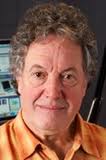Of the many postings about Boston radio station WGBH’s misguided downgrading of its signature jazz coverage — managing director Phil Redo has announced the removal of long-
beloved prime time show host Eric Jackson to weekends only, the end of producer Steve Schwartz’s Friday night show, and the cut back Bob Parlocha’s overnight program from seven nights a week to two — the best I’ve read is by Edward Bride in Berkshire Fine Arts.
It includes interviews with public radio sources in Chicago, Pittsburgh, San Jose, Cleveland and Lansing, Michigan, who note that the substitution of news-and-talk radio and extended NPR broadcasts has, in other markets, resulted in station losses rather than gains. If the value of well-known, highly popular local voices spinning great music to impressionable (and international — WBGH streams online) audiences is not apparent to decision-makers at WGBH, perhaps the experience of stations like WBEZ Chicago which by dropping jazz sent its hard-earned listenership to the college stations WNUR, WDCB, and WHPK can be instructive.
In Boston, the loss of iconic programming threatens the city’s bid for recognition as a hub of contemporary jazz action. It’s home, after all, to Berklee College of Music, the most thriving jazz education institution in the U.S., and New England Conservatory, one of the most open-minded, as well as jazz ed programs at Brandeis, Wellseley, Harvard, MIT, Mount Holyoke, Clark, Amherst, U. Mass, Emerson, etc. Â It has a tenacious, historic local jazz club scene and native son George Wein invented the jazz festival (Newport RI is just a couple hours away).
The grass roots support group Jazz Boston and entrepreneurial Mass Jazz website/magazine are relatively recent additions to Boston’s jazz ecosystem, adding focus to a community that can be opaque or amorphous. The Tanglewood Jazz Festival, produced by the Boston Symphony Orchestra, has been cancelled for 2012, despite the BSO receiving funds in 2011 from the National Endowment for the Arts to bring NEA Jazz Masters to TJF. The 2012 Berklee Beantown Jazz Festival, 13 years old and now also supported in part by the NEA, is scheduled for Sept. 29, 2012. It’s a fun, community-spirited affair (I attended last year), if not on the level of the municipally-signficant New Orleans Jazz and Heritage, Detroit, or Chicago Jazz Festivals.
So given that Boston is churning out jazz people with each graduating class, and has the educated, urban population that likes this music, it would seem to be a boon to a PBS/NPR station a la WGBH to have highly identifiable. personable and well-connected on-air voices  entertaining and edifying loyal listeners with America’s indigenous art form. Call-in talk shows are ok, I guess, but if it ain’t the Tappet Brothers Click and Clack telling me what’s wrong with somebody else’s car, I’m hard-pressed to identify anything especially Boston when I’m dialing ’round the dial.
Of course, I’m not a Red Sox, Celtics, Bruins or Patriots or Revolution fan, and I understand Boston is a helluva sports town. Maybe if ‘GBH threw in with that community it would see its ratings rise. Oh, already covered by the commercial stations? Hmmmm. Then how about sticking with something locally distinguished and distinctive? I’m thinking . . . Â jazz?
[There are several attempts being made to get WGBH to reconsider this decision: the Facebook group Save Eric in the Evening has more than 2100 members, and is the place to make your thoughts known, get in on protests, sign petitions, etc.]


